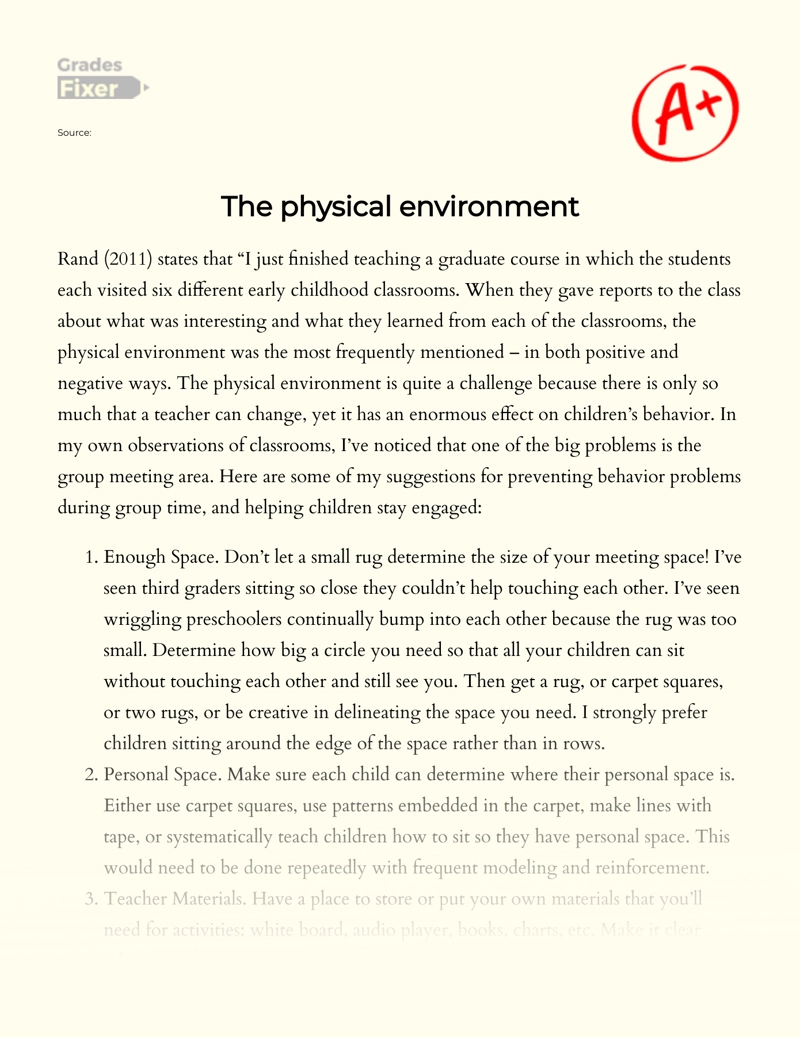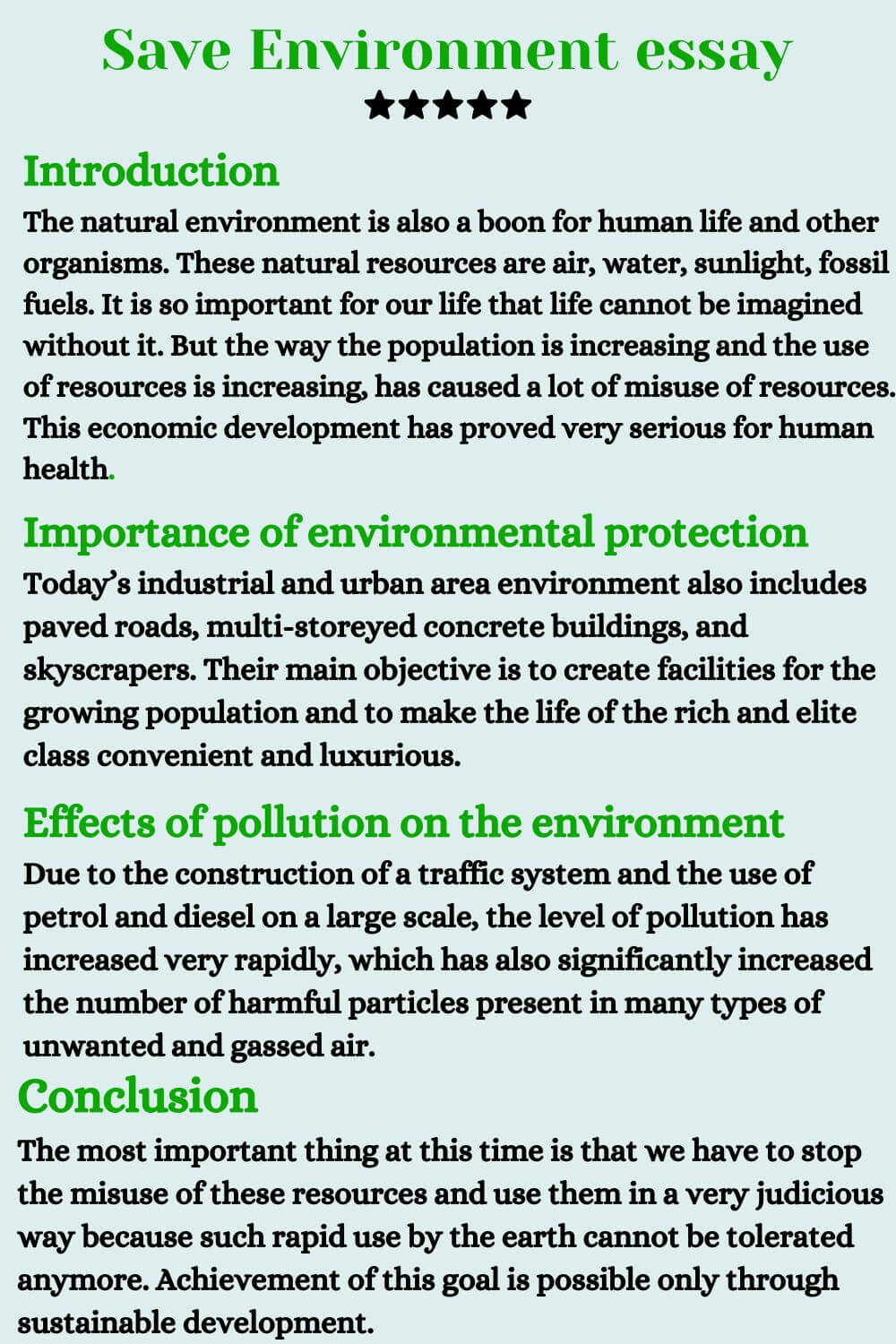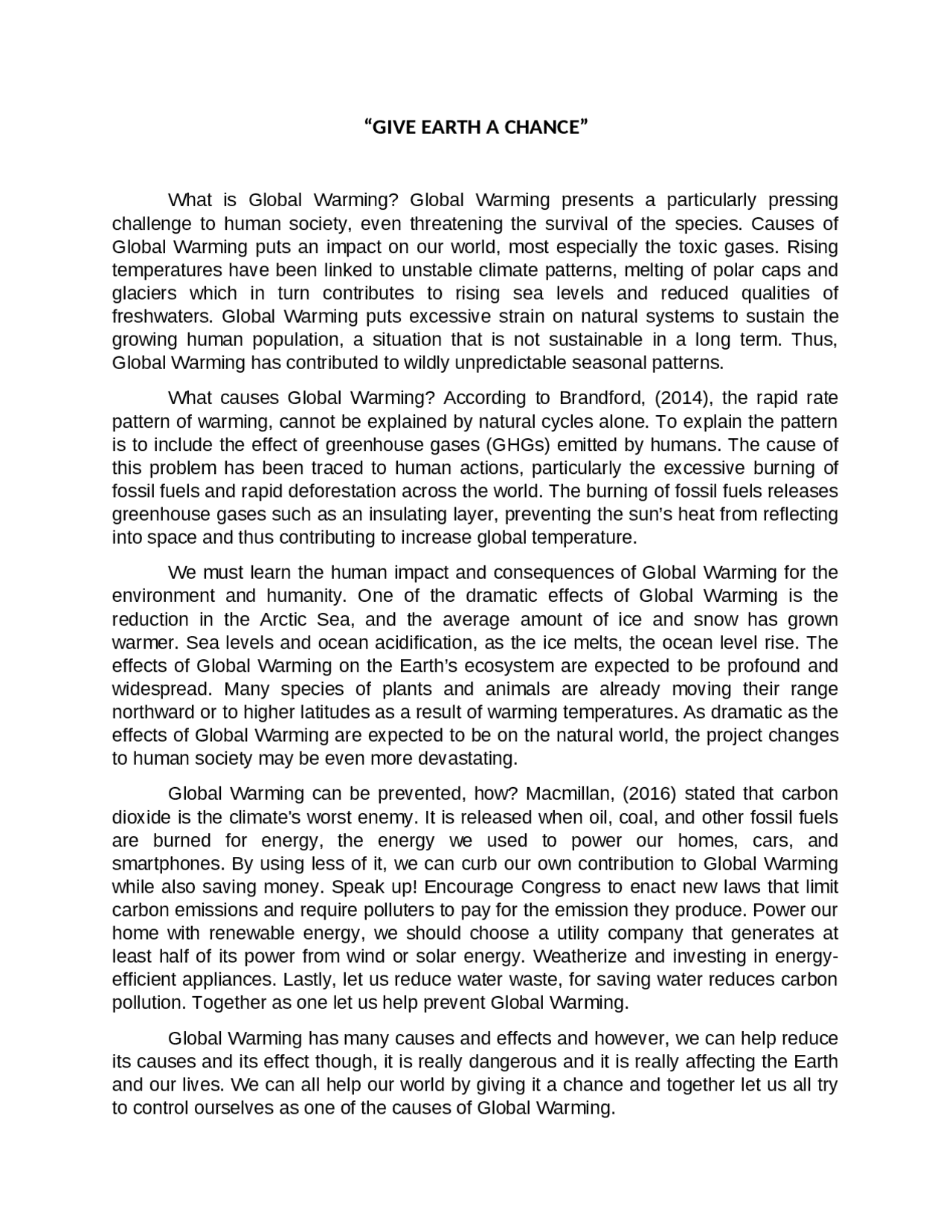The environment is the natural world that surrounds us and provides the resources and conditions necessary for life on earth. It includes all living and non-living things, as well as the air, water, and soil that support them. The environment plays a vital role in our lives, providing us with the necessities of life such as food, shelter, and water, as well as influencing our physical and mental well-being.
However, the environment is facing numerous threats, many of which are caused by human activities. Pollution, deforestation, and climate change are just a few of the environmental problems that are having a negative impact on the earth. These problems not only affect the environment, but also have consequences for human health and well-being.
One of the biggest environmental issues facing the world today is climate change. The Earth's climate is changing at an alarming rate due to the burning of fossil fuels, which releases large amounts of carbon dioxide into the atmosphere. This increase in carbon dioxide is causing the Earth's temperature to rise, leading to more frequent and severe natural disasters such as hurricanes, floods, and droughts. The effects of climate change are being felt around the world, with some regions experiencing more extreme weather than others. For example, some areas are experiencing longer and more intense heatwaves, while others are experiencing more frequent and severe storms.
Another major environmental problem is pollution. Pollution refers to the presence of harmful substances in the environment, such as chemicals, waste, and toxic substances. These substances can come from a variety of sources, including factories, vehicles, and agricultural practices. Pollution can have serious consequences for both the environment and human health. It can contaminate the air we breathe, the water we drink, and the soil that grows our food. Pollution can also lead to health problems such as respiratory illness, cancer, and heart disease.
Deforestation is another environmental issue that is having a major impact on the earth. Deforestation refers to the removal of forests, which are essential for the health of the planet. Forests provide a home for countless species of plants and animals, and they also help to regulate the Earth's climate by absorbing carbon dioxide from the atmosphere. When forests are cleared, the carbon they have absorbed is released back into the atmosphere, contributing to climate change. Deforestation also leads to soil erosion and the loss of biodiversity, as many species depend on forests for their habitat.
There are many ways that individuals and governments can help to protect the environment. One way is by reducing our reliance on fossil fuels and transitioning to clean, renewable energy sources such as solar and wind power. We can also reduce our impact on the environment by reducing our consumption of resources such as water and electricity, and by using environmentally-friendly products and practices. Governments can also play a role by enacting laws and regulations that protect the environment and encourage sustainable development.
In conclusion, the environment is an essential part of our lives and it is important that we take steps to protect it. Climate change, pollution, and deforestation are just a few of the many environmental issues that we face, and it is up to all of us to take action to address these problems and ensure a healthy and sustainable future for the planet.








